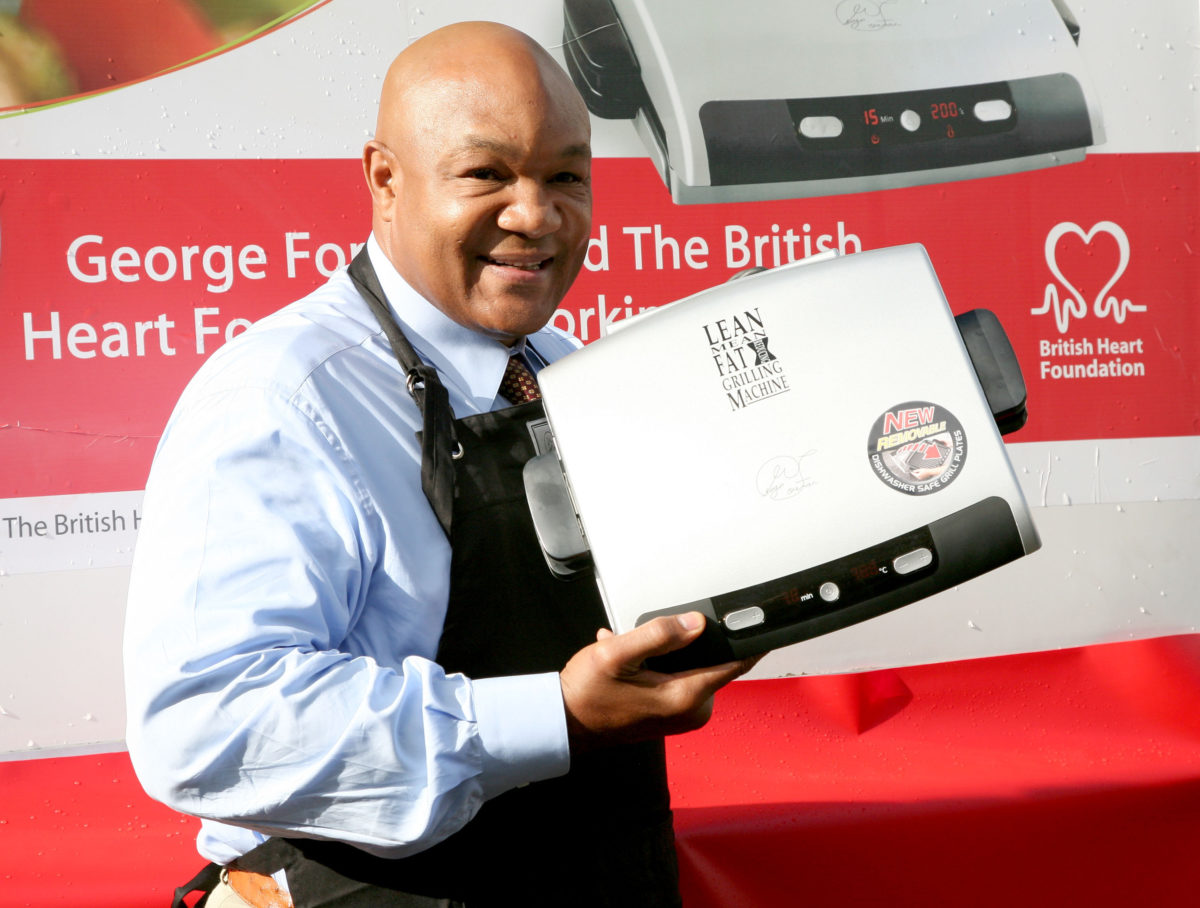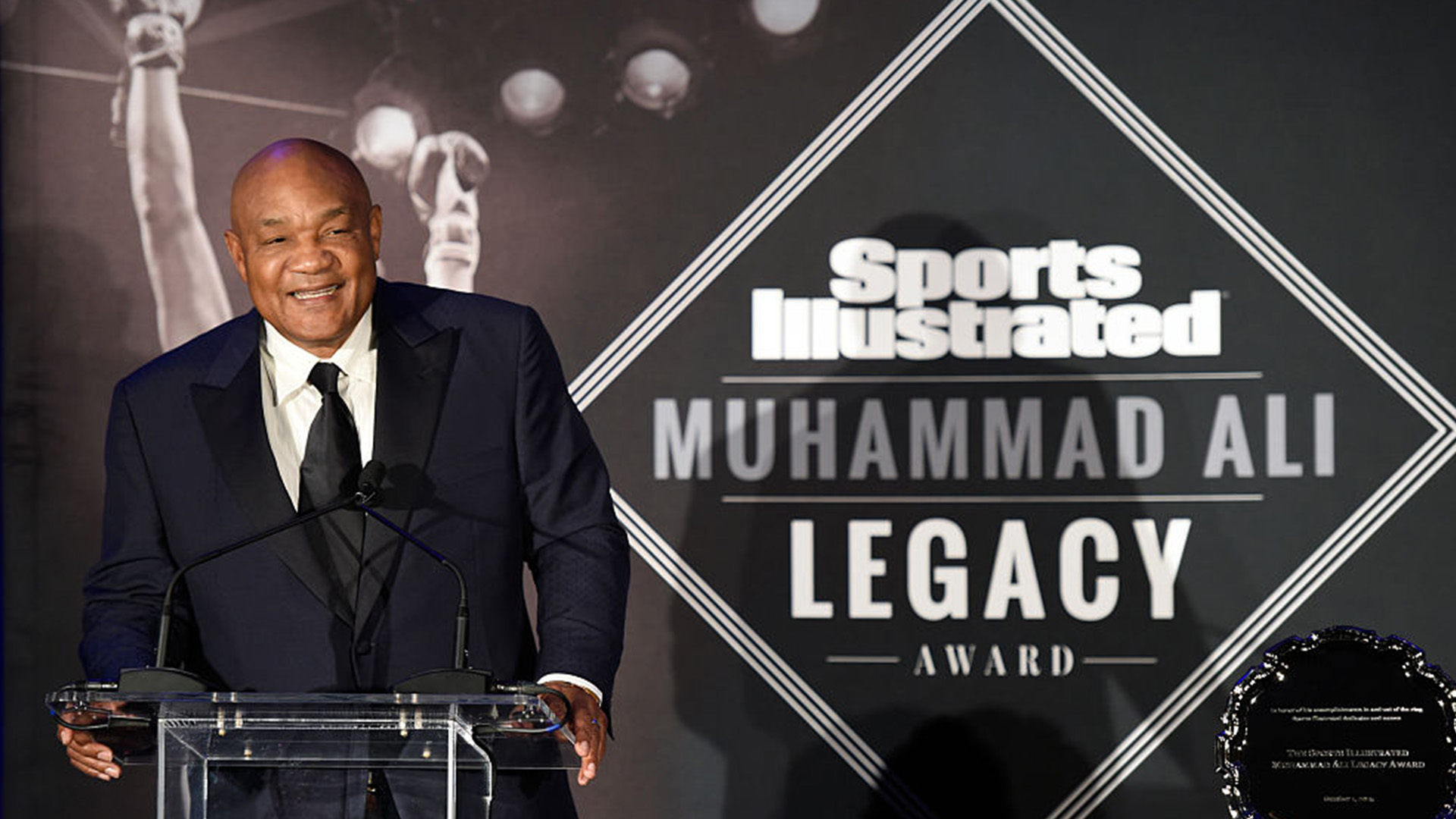Have you ever wanted a grilled burger, but the weather wasn’t cooperating, or you didn’t feel like busting out the grill? In 1994, a solution to that first-world problem manifested with the release of the George Foreman Grill.
The introduction of the small kitchen appliance was revolutionary at the time and was all the rave for consumers seeking the benefits from this innovative product. This invention, however, was not the initial highlight of Foreman’s career. His boxing prowess made him a household name, a global superstar, and a well-respected athlete.
George Foreman was born in 1941 in Marshall, TX. Based on his website, he had a challenging upbringing that led him to engage in several street fights. However, he would get the opportunity to enroll in a Jobs Corp program where he met Doc Broaddus, a boxing coach.
Once he began training, Foreman progressed rapidly, jumpstarting his professional career in 1969 after winning Gold in the 1968 Olympics amateur boxing competition.
The former heavyweight champion would see similar success in his professional career, earning a perfect record of 37-0, including 35 knockouts by 1972.
These moments eventually built up to Foreman’s most famous fight against Muhammad Ali in Zaire, commonly known as the Rumble In The Jungle. While Foreman lost this match, it did not dim his light as a boxer.
However, after losing a match in 1977, Foreman had a religious experience and decided to quit boxing. He opened a church and a youth-centered organization in the years that followed.
The Wall Street Journal reports that by 1986, well into his ministerial career, the boxer was nearly bankrupt — losing almost all the money he saved from his go-round in the ring.
While Foreman was an active boxer, he explained to The Wall Street Journal that he would take a percentage of his money and invest it to secure his financial future.
“When I first started making money from boxing, I put 25% of all my earnings into a trust fund,” Foreman told the media outlet. “I made other investments during that time, in cattle and gas wells, that I lost my shirt on, but I always had the trust fund. When I retired to become a minister, I survived on that money. I learned how important it is to have something to fall back on.”
Victories were great; but greater were the many hands I shook: President, movie stars. Athletes governor & wisdom from the construction and kitchen workers I met along the way. pic.twitter.com/s7vKdWFofK
— George Foreman (@GeorgeForeman) February 21, 2023
However, Foreman’s commitment to his causes and a change in the political landscape quickly shifted his economic environment. He returned to boxing, starting from more modest means than the lucrative career he once experienced.
“When I went back into boxing, Ronald Reagan had become president, and a lot of those investment benefits [tax breaks for the trust fund] had disappeared. I had to go out there and find some other way to invest my money,” Foreman said.
According to Forbes, he returned to boxing after suffering a $5 million loss in investments and was almost homeless. At this point, the former boxing champ had also grown older and out of shape.
He was expected to lose in 1994 to Michael Moorer. But to everyone’s surprise, the then 45-year-old beat Moorer, which sparked what Foreman considered the start of his sales career. He mastered the art of selling himself, which was the beginning of his trajectory back up.
Two things I will never forget about my Boxing career; How hard I could hit ( not proud of the first part) and how hard I was punched. I heard bells & Whistles while body collapsed pic.twitter.com/8PAfA7Ss1C
— George Foreman (@GeorgeForeman) May 24, 2022
After this monumental fight, Foreman was approached about using his name and likeness to sell a grill. Michael Boehm, the inventor of the Short Order Grill, sent Foreman a sell sheet and tooled prototype to consider, Entrepreneur reports.
AfroTech previously mentioned the details of this transaction, noting Foreman’s skepticism around the product.
“That was one of the happiest days of my business life,” Foreman told CNBC. “I lost my last professional boxing match, I’d received a check for $1 million for the grill.”

In two years, the George Foreman Grill would earn $5 million in revenue and skyrocket to $200 million by 1998. To date, there have been over $100 million in units sold.
“There were months I was being paid $8 million per month,” Foreman previously told AARP.
The success of the small kitchen appliance would lead to Foreman becoming a partner and ambassador for brands such as Meineke, Pepsi, Doritos, and McDonald’s.
With hard work and ambition, he has been able to bounce back and amass an estimated $300 million net worth, according to Celebrity Net Worth.


